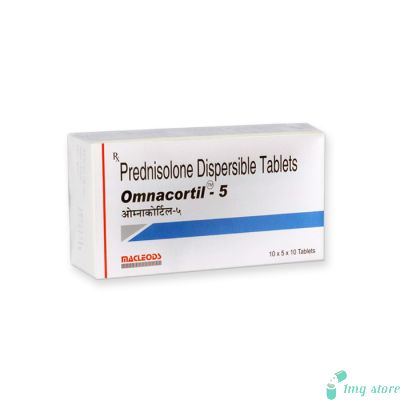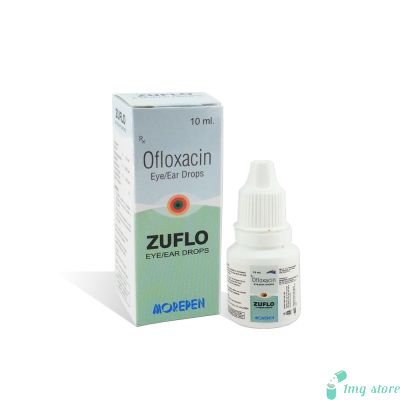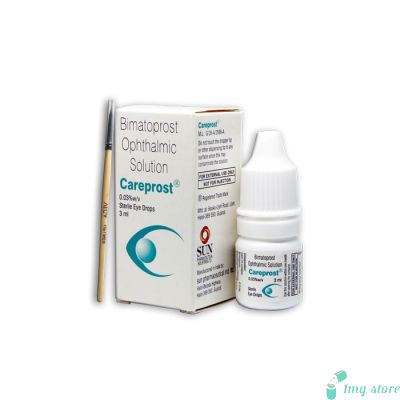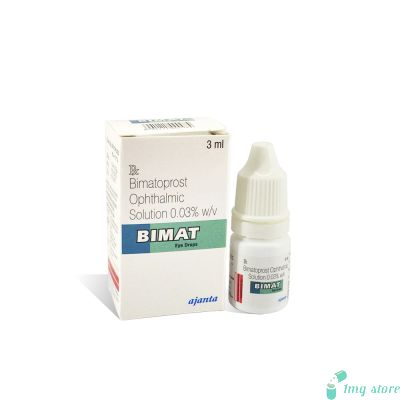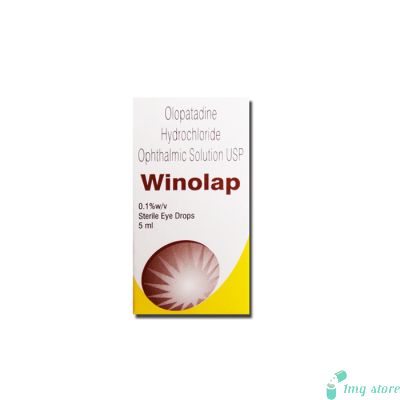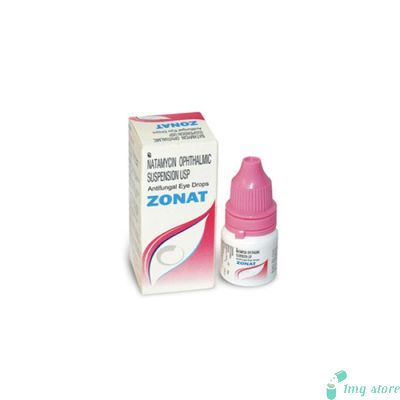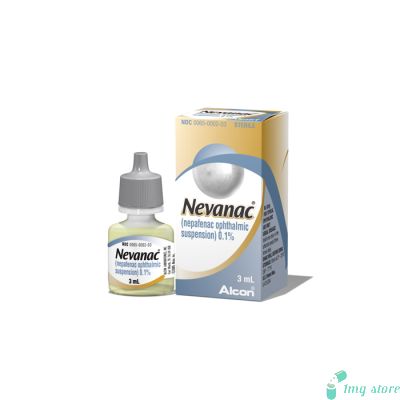Tropicacyl Eye Drop (Tropicamide)
Buy Tropicacyl Eye Drop (Tropicamide), Tropicamide Eye Drops, marketed under various brand names such as Tropicacyl and Mydriacyl, are pharmaceutical solutions primarily used for eye examination and dilation.
Introduction of Tropicacyl Eye Drop (Tropicamide)
Tropicamide Eye Drops, marketed under various brand names such as Tropicacyl and Mydriacyl, are pharmaceutical solutions primarily used for Eye Examination and dilation. These drops contain the active ingredient tropicamide, a potent anticholinergic medication that induces temporary pupil dilation, making it easier for Eye Care professionals to perform various diagnostic procedures. This comprehensive guide aims to provide detailed information about Tropicamide Eye Drops, including their dosage, uses, potential side effects, precautions, and drug interactions.
Tropicamide Dosage Information
Tropicamide Eye Drops are typically available in various concentrations, and the dosage may vary depending on the specific medical condition and the healthcare provider's recommendations. However, here are some general guidelines for their use:
Standard Dosage: For most routine eye examinations and dilation procedures, one to two drops of Tropicamide 0.5% solution are instilled into the affected eye(s) as directed by a healthcare professional.
Pediatric Dosage: The dosage for children may be lower than that for adults. Typically, one drop of Tropicamide 0.25% solution is administered to pediatric patients, but the exact dosage should be determined by a pediatrician.
Frequency: Tropicamide Eye Drops are usually administered 15 to 20 minutes before the eye examination or procedure, allowing sufficient time for the pupil to dilate fully.
Missed Dose: If you miss a dose of Tropicamide Eye Drops, try to instill it as soon as you remember. However, if it is close to the time for your next scheduled dose, skip the missed dose and continue with your regular dosing schedule. Do not double the dose to make up for the missed one.
Overdose: Using more Tropicamide Eye Drops than prescribed can lead to an overdose. Symptoms of overdose may include extreme pupil dilation, blurred vision, increased heart rate, dry mouth, and flushing. In case of overdose, seek immediate medical attention or contact a poison control center.
Buy Tropicamide Eye Drops Online:
If you're looking to purchase Tropicamide Eye Drops online, you can conveniently find them on our website, 1mgstore.com. We offer a hassle-free way to obtain this prescription eye medication, ensuring that you can access the product you need with ease and convenience. When it comes to prescription eye drops, trust 1mgstore.com as your reliable source.
When using Tropicacyl Eye Drop (Tropicamide), it is essential to consider the following precautions:
- Allergies: Inform your healthcare provider about any allergies you may have, especially if you are allergic to anticholinergic medications or any ingredients in the eye drops.
- Pregnancy and Breastfeeding: If you are pregnant or breastfeeding, consult your healthcare provider before using Tropicamide Eye Drops/Mydriacyl, as their safety during these periods is not well-established.
- Driving and Operating Machinery: Due to the potential for blurred vision and light sensitivity, avoid driving or operating heavy machinery immediately after using these drops until your vision returns to normal.
- Glaucoma: If you have glaucoma or a history of increased intraocular pressure, inform your healthcare provider, as Tropicamide can temporarily raise intraocular pressure.
- Other Medications: Discuss with your healthcare provider any other medications, including over-the-counter drugs and supplements, that you are taking, as they may interact with Tropicamide Eye Drops.
Tropicacyl Eye Drops (Tropicamide)/Mydriacyl serve a vital role in various ophthalmic procedures and medical conditions:
- Eye Examination: Tropicamide Eye Drops are primarily used to dilate the pupils, which allows eye care professionals to conduct comprehensive eye examinations. This dilation facilitates the assessment of the retina, optic nerve, and other parts of the eye.
- Diagnostic Procedures: These drops are instrumental in procedures such as fundoscopy, retinoscopy, and slit-lamp biomicroscopy, where a larger pupil size is essential for a clear view of the inner structures of the eye.
- Refractive Errors: Tropicamide Eye Drops may be used to evaluate and correct refractive errors like nearsightedness (myopia) and farsightedness (hyperopia) by enabling more accurate measurements.
- Uveitis: In some cases, Tropicamide Eye Drops can help manage uveitis, an inflammatory condition of the eye, by reducing pain and discomfort associated with light sensitivity.
- Amblyopia Treatment: Tropicamide Eye Drops can be part of amblyopia treatment in children, as they temporarily blur the vision in the stronger eye, encouraging the weaker eye to become more active and improve visual development.
Some of the Secondary Effects of Tropicacyl Eye Drops (Tropicamide)
Like any medication, Tropicamide Eye Drops may cause side effects, although not everyone experiences them. Common side effects include:
Temporary Blurred Vision: After installation, it is common to experience blurred vision, especially for close objects. This effect typically lasts for a few hours.
Light Sensitivity: Patients may become more sensitive to light (photophobia) after using Tropicamide Eye Drops.
Stinging or Burning Sensation: Some individuals may feel a mild stinging or burning sensation immediately after applying the drops.
Redness and Irritation: Temporary redness and eye irritation may occur, but these effects usually resolve quickly.
Increased Intraocular Pressure: In rare cases, Tropicamide can cause a temporary increase in intraocular pressure, which may be problematic for individuals with glaucoma. Therefore, it should be used with caution in such cases.
Frequently Asked Queries About Tropicacyl Eye Drop (Tropicamide)
Can Tropicamide Eye Drops be used for routine eye care at home?
No, Tropicamide Eye Drops should only be administered by healthcare professionals during eye examinations. Using them without proper supervision can lead to potential side effects and complications.
Are there any dietary restrictions while using Tropicamide Eye Drops?
No specific dietary restrictions are associated with Tropicamide Eye Drops. However, it's crucial to follow the prescribed dosage and recommendations provided by your healthcare provider.
Can Tropicamide Eye Drops cure my eye condition?
Tropicamide Eye Drops are not a cure for eye conditions; they are diagnostic tools that temporarily dilate the pupils for better examination. The treatment for your specific eye condition will depend on the diagnosis made during the examination.
Can I wear contact lenses while using Tropicamide Eye Drops?
It's best to avoid wearing contact lenses immediately after using Tropicamide Eye Drops, as they may be uncomfortable due to temporary blurred vision. Consult your eye care professional for guidance on when it's safe to reinsert your lenses.
Do Tropicamide Eye Drops affect my ability to see at night?
Tropicamide Eye Drops can cause temporary light sensitivity and blurred vision, which may affect your ability to see at night. It's recommended to avoid nighttime driving or other activities requiring clear vision until these effects wear off.
Where to Buy Prescription Eye Drops?
Wondering where to find prescription eye drops? Look no further than our website, 1mgstore.com. We provide a trusted platform for purchasing a range of prescription eye medications, including Tropicamide Eye Drops. Our online store offers a secure and convenient option for obtaining the eye care products you require, all from the comfort of your own home.
Significant Drug Interactions that Require Attention For Tropicacyl Eye Drop (Tropicamide)
Tropicamide Eye Drops can interact with other medications and substances, potentially affecting their efficacy or increasing the risk of side effects.
- Anticholinergic Medications: Concurrent use of Tropicamide with other anticholinergic medications, such as atropine or scopolamine, may intensify the anticholinergic effects, leading to increased side effects like dry mouth, blurred vision, and confusion.
- Beta-Blockers: Combining Tropicamide with beta-blockers used to treat glaucoma may result in reduced pupil dilation, potentially interfering with the intended diagnostic effects of the drops.
- Monoamine Oxidase Inhibitors (MAOIs): MAOIs can potentiate the effects of Tropicamide, potentially leading to increased intraocular pressure and a greater risk of glaucoma complications.
- Tricyclic Antidepressants: Tricyclic antidepressants, such as amitriptyline, can enhance the mydriatic effect of Tropicamide, potentially leading to prolonged pupil dilation.
- Alcohol and Sedatives: The combination of Tropicamide with alcohol or sedative medications may lead to increased drowsiness and impaired coordination, so it is advisable to avoid these combinations.
| Manufacturer | : | Sunways, India |
| Equivalent Brand | : | Mydriacyl |
| Generic Search | : | Tropicamide |









